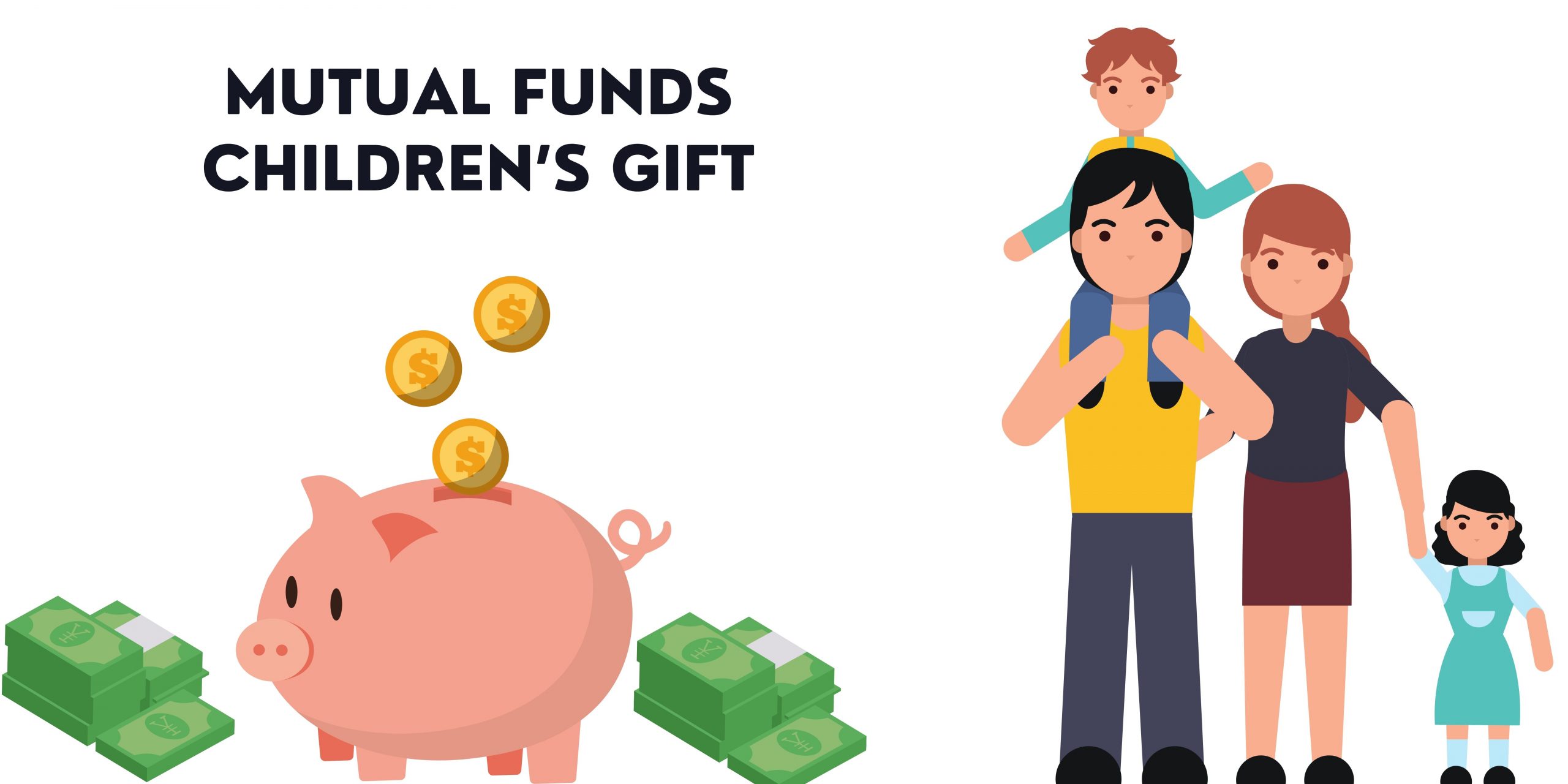Mutual Funds Children’s Gift
Arvind was running his own small business where he had a partner Arjun. Arjun had some financial knowledge about Mutual Fund Investment and stock marketing. When he got to know about the mutual fund investment children’s gift, he gained knowledge about that scheme and told Arvind to invest in this children’s mutual fund as these plans should be used to achieve long-term objectives, how he can benefit significantly from tax efficiency if his kid’s mutual fund plan is a debt-based scheme. If he invests in a children’s gift mutual fund, he may choose from various custom-made or tailor-made fund plans. After hearing from Arjun, Arvind also opened his children’s mutual fund account.

What is a Children’s Gift Mutual Fund, and how does it work?
Children’s Gift Funds are mutual fund investment plans that provide financial benefits to your children, such as financing wedding expenditures, future educational obligations, and so on.
This results in long-term capital growth and is classified as a Balanced Mutual Fund or Hybrid Fund. Gift funds use a mix of debt and equity instruments to invest. Fixed Income Securities are an example of a debt instrument, whereas shares are an example of an equity instrument.
Long-term investments and plans for your child
When it comes to raising your child, you want the best for him or her. one may put a percentage of his/her salary into a gift mutual fund to help their child save money for various things. With this money, one may assist your child in achieving his or her goals. These plans should be used to achieve long-term objectives. When investing in such a fund, one should overlook short-term market swings and concentrate on the long-term profits.
Child mutual fund programs provide several advantages
- Different goals for different stages of a kid can be achieved using child mutual fund programs. For instance, a child’s education, further education, healthcare requirements, wedding plans, house buying plans, automobile purchase plans, and so on. As a result, categorizing finances in a plan is necessary and advantageous.
- One can benefit significantly from tax efficiency if your kid’s mutual fund plan is a debt-based scheme. One won’t have to worry about paying taxes for several years if you invest in your child’s name. As a result, they are excellent long-term investments. Individuals will not be subject to tax consequences until you redeem a fund unit. Furthermore, the indexation advantage will reduce your tax to nearly nothing as time passes.
- When you invest in a children’s gift mutual fund, you may choose from various custom-made or tailor-made fund plans.
- When investing in a kid’s mutual fund, the investor should not redeem or withdraw funds without first thinking about it. It deters investors from quitting quickly without committing to a long-term strategy.
- With the aid of these mutual fund investment plans, a youngster may realize their dreams without having to compromise them owing to financial constraints.
Things to Consider Before purchasing Children’s Gift Mutual Funds
Consider the following things before buying a mutual fund:
The Fund’s Mission – Learn about the fund’s asset allocation strategy and investing plan. Whether the funds are equity-oriented or debt-oriented are essential considerations. It is also necessary to assess risk exposure.
Documentation — To invest in a gift mutual fund, the investor must complete specific KYC paperwork. The KYC paperwork provides information on the kid and the investor (parent or guardian). Additional KYC documentation must be given when the fund is redeemed and/or when the kid reaches the age of maturity.
Returns – When evaluating the opportunity cost of investing in a Children’s Gift Mutual Fund, it’s essential to compare it to comparable equities funds. This assists an investor in selecting the best suitable mutual fund strategy for generating high returns.
Expenses – It’s crucial to keep track of the total amount of money spent or the expense ratio. The exit load is vital; it can significantly impact the investment’s overall profits.
Lock-in Period — Most gift mutual funds offer the option of locking in your money for a set period. This allows the investor to be certain that their money will be safe until the child reaches the age of 18.
Exit load for mutual funds for children
If you’re thinking about buying a mutual fund for your kids, you should be aware of the exit load. Most mutual fund companies aim to keep parents as clients for a long time. As a result, if you want to redeem your account early, you will be charged a large exit load or penalty.
Previously, most mutual funds had entry loads. Fund houses normally charge roughly 1% as an exit load when an investor tries to redeem the fund before it has completed one year after the entry load was prohibited. When exiting a child mutual fund plan, you should expect to pay an exit cost of up to 4%. Furthermore, an investor’s commitment to a kid mutual fund plan might last up to 5 years. Some schemes levy an exit cost even if a mutual fund scheme is abandoned after seven years.





























